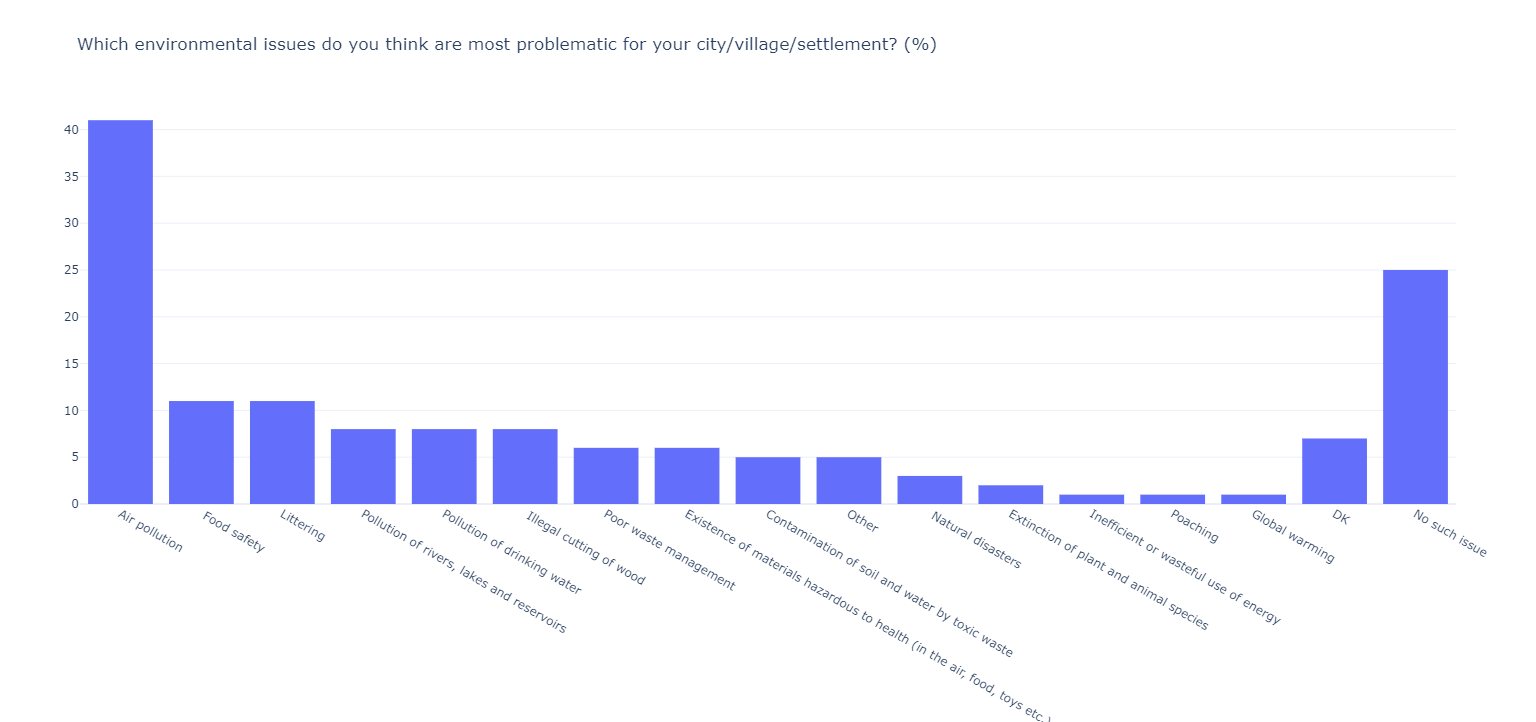
While air pollution is dominant as the most important environmental issue for Georgians, a stark rural-urban divide exists with rural Georgians being one-third more likely to believe that there are no environmental problems in their communities.
Georgia faces a number of environmental challenges, including air pollution, issues with invasive species such as the brown marmorated stink bug, and natural disasters.
Data from the World Health Organization suggests that Georgia has a moderate problem with air pollution, ranking 70th in the world and, according to CRRC and NDI data from 2020, a little under half of Georgians perceive it as the biggest environmental issue in their community.
At the same time, a quarter of the public does not think there are any environmental issues in their community, with people in rural areas particularly unlikely to think that their community faces environmental problems.
Both littering and food safety were named as the most problematic local environmental issue by 11% of respondents, while all remaining issues were named by less than 10% of the population.

Respondents were allowed to name up to three different issues as ‘the most problematic’ in their community. Overall, 15% named three issues, 21% two issues, 31% one issue, and 32% reported that there was no issue or did not know which issues were most problematic.
A regression analysis suggests that people with higher than secondary education named more issues than those with only a high school education. Similarly, respondents living in wealthier households named more issues than those in poorer households, controlling for other factors. Older people named fewer issues than younger people generally. The largest difference between groups though was between settlement types. People in rural areas named half as many issues as people in Tbilisi.
In rural areas, people were also significantly more likely to report there were no problematic environmental issues in their settlements. People in rural areas were 33 percentage points more likely, controlling for other factors, to think there are no environmental issues in their community compared to people in Tbilisi. Similarly, rural people are 17 percentage points more likely to report no environmental issue in their community than those in urban areas aside from Tbilisi.
Not naming any environmental issue was also associated with education. People with tertiary education are seven percentage points less likely than those who completed only secondary school to say there are no issues. Similarly, people with a vocational education are five percentage points less likely to report there are no environmental issues compared with those with only secondary education, controlling for other factors.
There were no significant differences between women and men, those in wealthier and poorer households, the employed and those not working, and people in different age groups in terms of naming at least one issue or reporting there are no issues.
This article was written by Dustin Gilbreath, Deputy Research Director at CRRC Georgia. The views expressed in this article represent the views of the author alone and do not reflect the views of CRRC Georgia, NDI, or any other entity.








